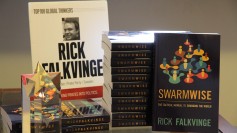
The sharing economy movement is taking a new stride in the Arab World, and many platforms have taken the initiative of implementing the methods of collaborative economy. We dig deep and scrutinize the factors and the potential which could see this industry grow bigger in the region at a quick rate. Here we offer some successful stories.
The sharing economy in the Arab World has been witnessing an ongoing shift in the trend that has envisaged owning rather than accessing. This shift has turned things around, where now the value of the product in the Arab World day after another has become one of usage- not in its outright ownership anymore; as was the case with mainstream consumer models. Used products are more fashionable, thanks to the popularity of online platforms for buying and selling used goods.
People are also adopting what could be called collaborative lifestyles, and depend on each other in circulating and spreading all what occupy their daily interests and concerns like we have seen in the turbulent upheavals of the Arab Spring where the power of social media and its effect on society have accelerated the rate at which relationships develop and information is shared.

The sharing economy movement in the Arab World has seen a positive eruption in the recent few years, especially in the last one. We’re beginning to share more and more in the Arab world —; boats (fishfishme); skills (Taskty); carpooling (Kartag); swapping goods (Swaphood ) or selling used goods (krakeebegypt, dubizzle.com, Avito.ma In Morocco, a classified ads website has become the second most-visited website in the country. and Takemine the first online marketplace for peer-to-peer goods sharing in Dubai that will open (launch) soon.
Continue reading “Jean Lievens: Arab Sharing Economy Examples”










